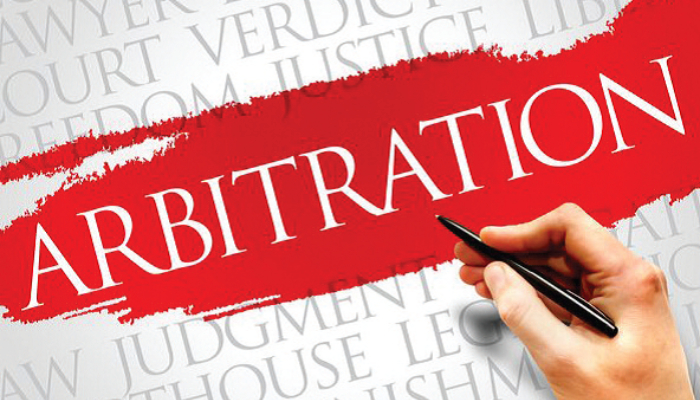
or

In any arbitration proceeding in addition to direct claims of receivables, declaration, amounts due etc., the claim for interest on those due amounts and damages form an important part of the claim. The interest component is awarded as a damage for the loss incurred to the Claimant due to the delay in receiving the payments for the above said direct claims. In addition to the above said direct claims in most of the arbitrations there can be claim for damages also for breaches of contract. This article deals with the principles to be followed by the arbitrators while granting interest on damages.
Some Contracts provide for damage clauses quantifying the damages payable to the affected party by the breaching party and prescribe an interest rate that can be paid on the liquidated damages prescribed in the contract. In some types of contracts, there are negative covenants prohibiting any payment of interest along with damages. In some other contracts there is no provision for interest as well as no bar for paying interest on damages. The Supreme Court of India, after considering the above said three types of contracts settled the law with regard to the interest payable on the damages arising out of the above said contracts. The Constitution Bench of the Supreme Court of India, in irrigation department case1, Dhenkanal Minor Irrigation Division2, Bhawagati Oxygen Ltd3. held that in the absence of an express bar, the arbitrator has the jurisdiction and authority to award interest for all the three periods pre-reference, pendente lite and future. Hence, the arbitrator can grant interest at the rate specified in the contract or a reasonable rate of interest as long as there is no prohibition to grant interest. But at the same time, it should be kept in mind that if there is an express prohibition in the contract for the award of interest then award cannot contain the interest for pre-reference and pendente lite periods. But future interest cannot be prohibited by way of a provision in the contract and hence arbitrator has absolute power in granting future interest.
It is true that the position of law earlier was that in regard to award of damages, interest was not payable before quantification of damages by a court or an Arbitration tribunal. The above said position of law was supported by the justification that it would not be true to say that a person who commits a breach of contract incurs pecuniary liability, nor would it be true to say that the other party to the contract who complains of the breach has any amount due to him from the other party. Hence, the only right which he has is the right to go a court of law and recover damages as held by High Court of Bombay in Iron and Hardware4 case. But the position regarding award of interest after the Interest Act, 1978 came into force can be stated thus:
Payment of interest pendente lite (date of institution if proceedings to date of decree) and future interest (from the date of decree to date of payment) shall no be governed by the provisions of the Interest Act, 1978 but by the provisions of section 34 of the Code of Civil Procedure. 1908 or the provisions of the law governing arbitration as the case may be.
Hence the law relating to grant of interest on damages underwent a change after the enactment of the Interest Act, 1978. In view of the Interest Act, 1978 even in regard to the claims for damages, interest can be awarded for a period prior to the date of ascertainment of quantification and hence if (a) the contracts specifically provides for such payment from the date provided in the contract or (b) a written demand had been made for the payment of interest on the amount claimed as damages before initiation of action, from the date mentioned in the notice of demand (that is from the date of demand or any future date mentioned therein). In regard to claims for ascertained sums due, interest will be due from the date payment became due as held in State of Rajasthan case5. Hence, the arbitrators are required to keep in mind the above said change in law, while grating interest on damages to achieve a sustainable award.
S. Ravi Shankar is an expert arbitration lawyer having experience of handling International & Domestic commercial arbitrations seated in India and abroad. He has handled many high value construction & infrastructure arbitrations, investment arbitrations, supply contract related arbitrations under Indian law, SIAC Rules, ICC Rules, HKIAC Rules, LCIA Rules and DIAC Rules. He is a member of Advisory board of ICCA Publications Committee. He is the Chairman of a world class Institutional arbitration center IDAC India. He is the senior partner of Law Senate law firm.

Lex Witness Bureau

Lex Witness Bureau

For over 10 years, since its inception in 2009 as a monthly, Lex Witness has become India’s most credible platform for the legal luminaries to opine, comment and share their views. more...
Connect Us:


The Grand Masters - A Corporate Counsel Legal Best Practices Summit Series
www.grandmasters.in | 8 Years & Counting
The Real Estate & Construction Legal Summit
www.rcls.in | 8 Years & Counting
The Information Technology Legal Summit
www.itlegalsummit.com | 8 Years & Counting
The Banking & Finance Legal Summit
www.bfls.in | 8 Years & Counting
The Media, Advertising and Entertainment Legal Summit
www.maels.in | 8 Years & Counting
The Pharma Legal & Compliance Summit
www.plcs.co.in | 8 Years & Counting
We at Lex Witness strategically assist firms in reaching out to the relevant audience sets through various knowledge sharing initiatives. Here are some more info decks for you to know us better.
Copyright © 2020 Lex Witness - India's 1st Magazine on Legal & Corporate Affairs Rights of Admission Reserved